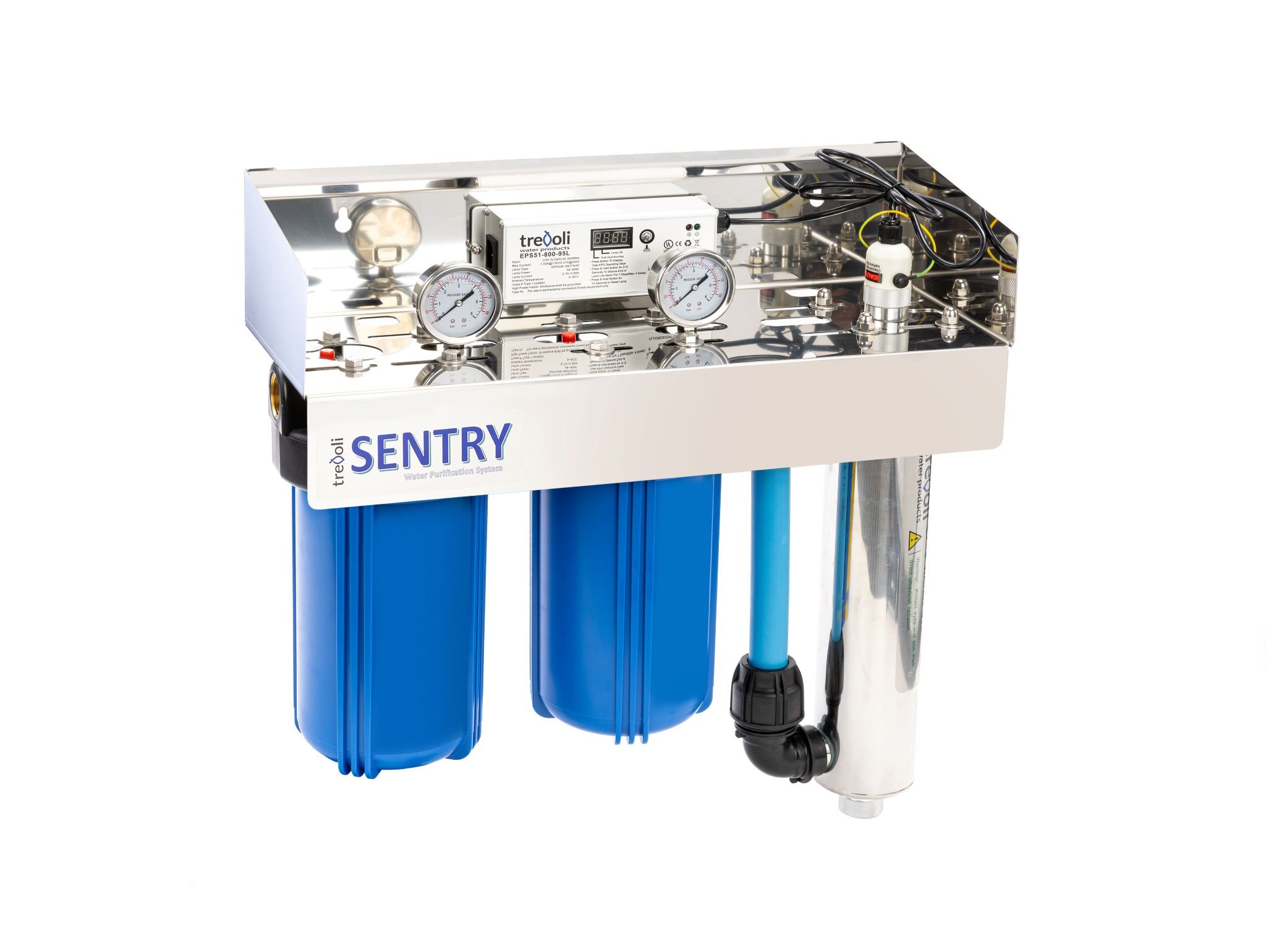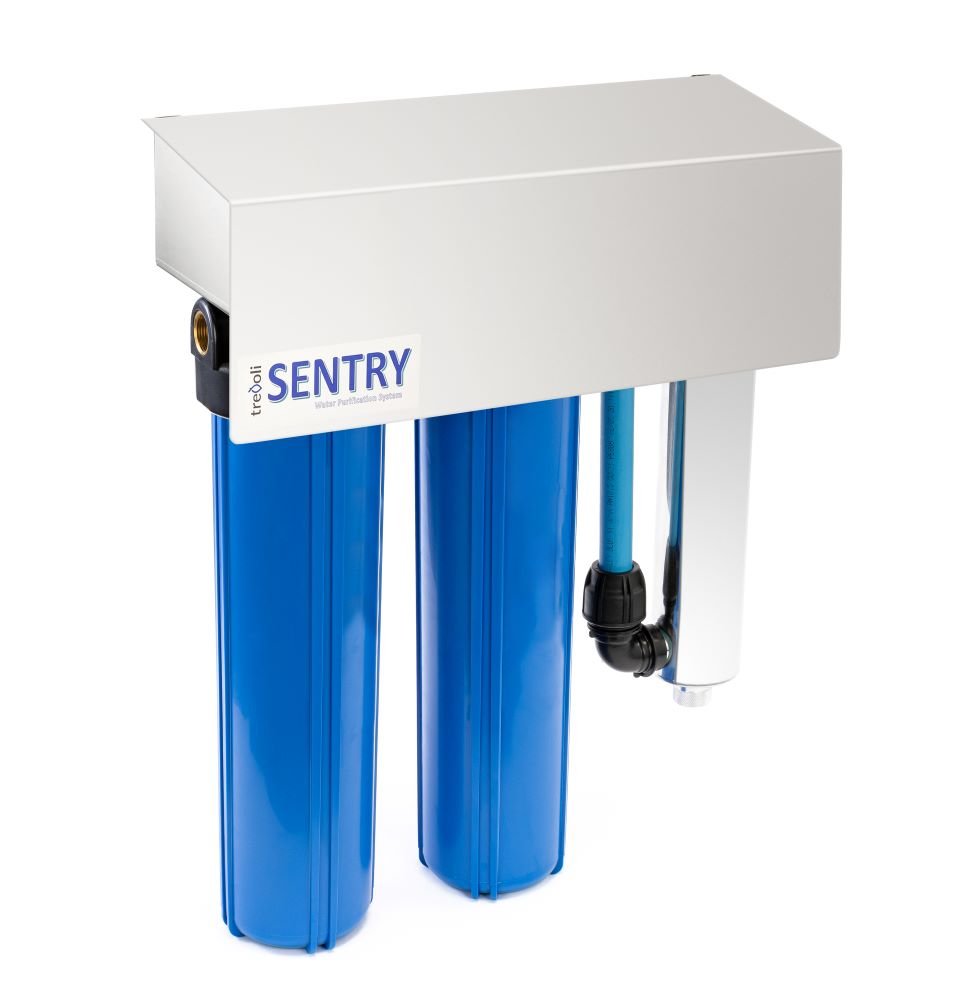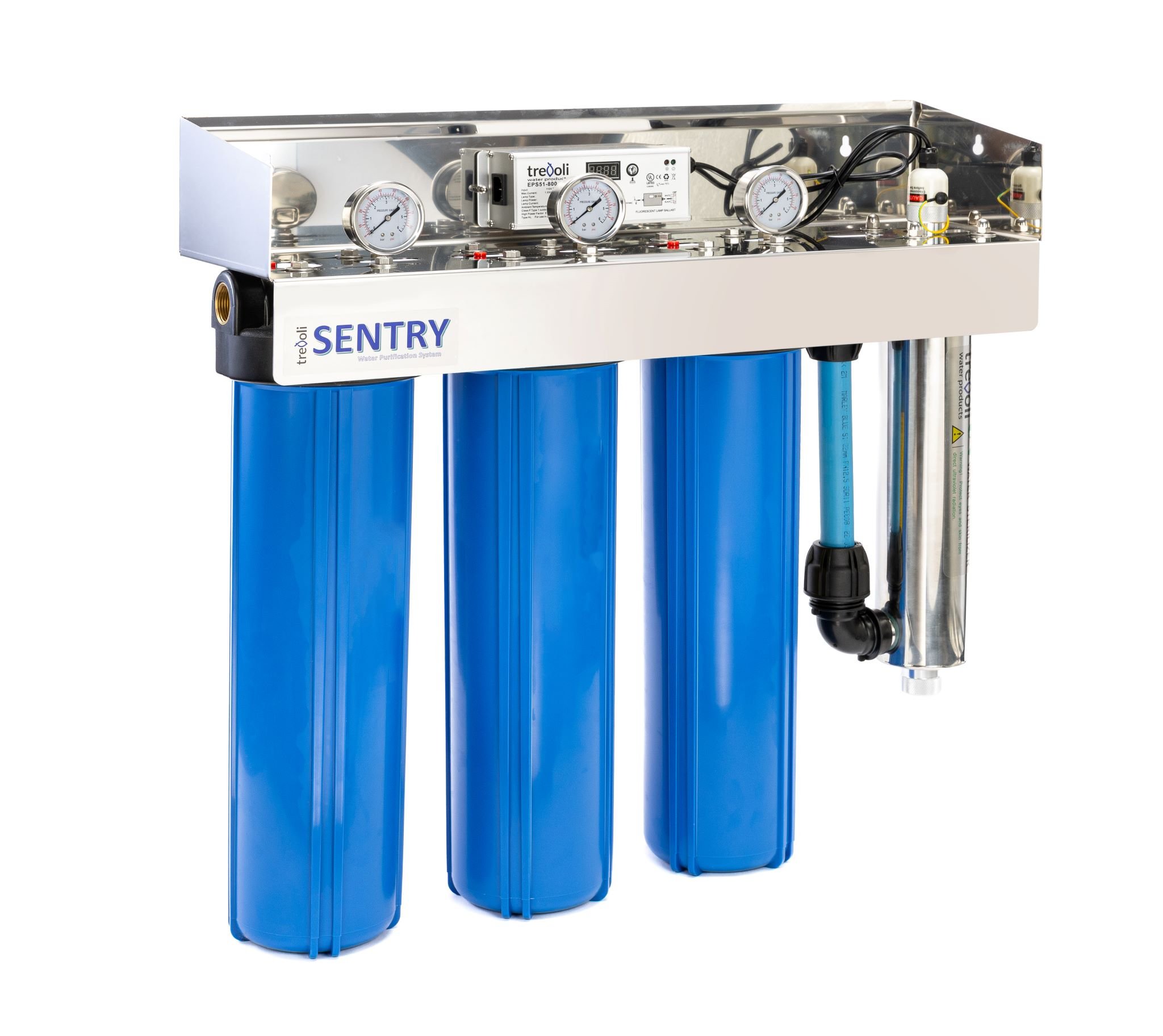New Zealand enjoys a global reputation for its pristine, "clean and green" environment. We picture crystal-clear rivers and pure rainwater, and for the most part, we’re incredibly lucky. However, the water that actually flows from our taps—whether in a bustling city centre or on a rural lifestyle block—can tell a different story. From the chlorine used to treat municipal supplies to sediment and potential nasties in tank water, the quality can vary significantly. This is where a whole house water filter becomes less of a luxury and more of a cornerstone for a healthy Kiwi home, ensuring every drop from every tap is clean, safe, and pleasant.
-
Whole House Systems
Trevoli Sentry 102 water filtration system Left Hand Entry Right Hand Entry
$1,490.00 Add to cart -
Whole House Systems
Trevoli Sentry 103 water filtration system Left Hand Entry Right Hand Entry
$1,771.00 Add to cart -
Whole House Systems
Trevoli Sentry 202 water filtration system Left Hand Entry Right Hand Entry
$1,725.00 Add to cart -
Whole House Systems
Trevoli Sentry 203 water filtration system Left Hand Entry Right Hand Entry
$1,932.00 Add to cart
Why NZ Homes Need Whole House Water Filters
For those connected to a town supply, it’s easy to assume the water is perfect. While it’s treated to be safe for consumption, this treatment process often involves chlorine. While effective at killing bacteria, chlorine can leave an unpleasant taste and smell in your water, affecting everything from your morning cuppa to the water you cook with. Furthermore, as water travels through an often-ageing network of pipes to reach your property, it can pick up sediment, rust particles, and even traces of heavy metals. A whole house filter acts as a final gatekeeper at your boundary, removing these unwanted extras before they ever enter your home’s plumbing.
The need becomes even more critical for Kiwis living rurally who rely on rainwater tanks, bore water, or stream-fed systems. These private water sources are completely exposed to their immediate environment. Rainwater can collect debris, bird droppings, and atmospheric pollutants from the roof, while groundwater can be contaminated by agricultural runoff like pesticides and nitrates, or bacteria such as E. coli and Giardia. Without a robust filtration system, you are directly consuming whatever has found its way into your supply. A comprehensive whole house system, often including UV sterilisation, provides essential peace of mind that your family is protected from these invisible health risks.
Beyond just improving the quality of your drinking water, a whole house filter offers benefits that extend to every corner of your home. Chlorine and hard water minerals can be harsh on skin and hair, leading to dryness and irritation after showering. Filtered water is noticeably softer and gentler. It also protects your expensive appliances. Washing machines, dishwashers, and hot water cylinders are all susceptible to damage and inefficiency caused by sediment and scale buildup. By filtering the water as it enters your home, you extend the lifespan and improve the performance of these appliances, saving on potential repair bills down the track.
Choosing the Right Filter for Your Kiwi Home
The first and most important step in choosing a whole house water filter is to understand what’s actually in your water. The ideal system for a home on Auckland’s town supply will be very different from one needed for a lifestyle block in the Waikato using bore water. For town supply, your main goal might be removing chlorine and sediment. For a rural property, the focus will be on potential bacteria, cysts, and agricultural contaminants. The best way to get a clear picture is to have your water professionally tested. This will give you a detailed report on any contaminants present, allowing you to select a filtration system that specifically targets your home’s unique water challenges.
Once you know what you need to remove, you can explore the different types of filtration available. Most New Zealand homes benefit from a multi-stage system. This typically starts with a sediment filter, which captures larger particles like dirt, rust, and sand. This is often followed by one or more carbon block filters, which are superstars at absorbing chlorine, chemicals, pesticides, and other compounds that affect taste and odour. For rural and rainwater systems where bacteria is a concern, an Ultraviolet (UV) steriliser is a non-negotiable final stage. The UV light scrambles the DNA of microorganisms like bacteria and viruses, rendering them harmless without adding any chemicals to the water.
Finally, consider the practicalities of installation and maintenance. Key factors include the system’s flow rate—measured in litres per minute—to ensure you don’t experience a drop in water pressure, especially during peak use. You’ll also see micron ratings on filters; the smaller the number (e.g., 1 micron vs 20 micron), the finer the particles it can trap. Remember that a filtration system is only as good as its upkeep. You’ll need to factor in the ongoing cost and effort of replacing filter cartridges and, for UV systems, the annual replacement of the lamp. While some handy Kiwis might tackle the installation themselves, getting a registered plumber to fit the system is often the best way to ensure it’s done correctly and to code.
Ultimately, investing in a whole house water filter is an investment in the health of your family and the longevity of your home. It moves beyond simply treating the water at a single kitchen tap to providing a comprehensive solution for clean, safe water everywhere—in your shower, your laundry, and your garden hose. By understanding your specific water source and choosing a system tailored to your needs, you can restore confidence in your water supply. You can enjoy water as it should be, ensuring every tap in your Kiwi home delivers nothing but the best.



